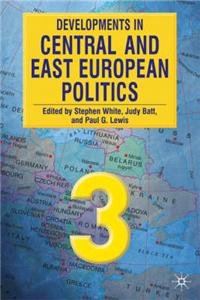Only logged in customers who have purchased this product may leave a review.
Sale!
Integrating Europe (Hardback) | Released: 06 Jun 2010
By: Jeffrey Stacey (Author) Publisher: Oxford University Press, USA33.00% Off Original price was: ₹8,971.00.₹6,010.00Current price is: ₹6,010.00.
You save ₹2,961.00
In Integrating Europe: Informal Politics and Institutional Change the author explains why the European Union (EU) member states actively surrender policy-making power to supranational authorities in unconventional ways. In light of the general antipathy toward giving up national sovereignty in European societies–even where “pro-European” sentiment thrives, why do national governments... Read More
In stock
Ships within 1-2 Business Days

100% Orginal Books

Easy Replacement

Certified product

Secure Checkout

On time delivery
Author:
![]()
Jeffrey Stacey
Publisher Name:
![]()
Oxford University Press, USA
Language:
![]()
English
Binding:
![]()
(Hardback)
About The Book
In Integrating Europe: Informal Politics and Institutional Change the author explains why the European Union (EU) member states actively surrender policy-making power to supranational authorities in unconventional ways. In light of the general antipathy toward giving up national sovereignty in European societies--even where "pro-European" sentiment thrives, why do national governments allow the creation of any new EU laws or policies whose effects they cannot keep under their general control? Why do EU member states allow any sovereignty transfer to occur outside of inter-governmental treaties, which are the only legitimate EU bargains found in the EU's formal sphere? Deploying the tools of rational choice institutionalist theory, Jeffrey Stacey argues that informal bargains struck between the EU's primary organizational actors--the European Council, European Commission, and European Parliament--have paradoxically resulted in increased integration. As the EU is an ideal laboratory for testing different institutionalist hypotheses for explaining institutional change, the author focuses on the ongoing competition to alter the EU rules that allocate power, and, with an approach that allows for feedback loops among agents and structures, makes an argument that flies in the face of realist and intergovernmentalist theories. While some have shed light on the importance of informal dynamics in the legal sphere of the EU, this book does the same for the policy-making sphere.About the Author: Jeffrey Stacey is currently International Engagement Officer in the U.S. State Department, where he works on European Union and NATO relations in the Office of the Coordinator for Reconstruction and Stabilization (S/CRS). Previous to this, he was Assistant Professor of Political Science and International Relations at Tulane University, where he was a member of the Murphy Institute of Political Economy and the Payson Center for International Development. He serves on the board of the World Affairs Council of New Orleans, and has also worked for the European Union and the British Government. Dr. Stacey occasionally serves as a consultant for think tanks such as the Open Society Institute.










Reviews
There are no reviews yet.